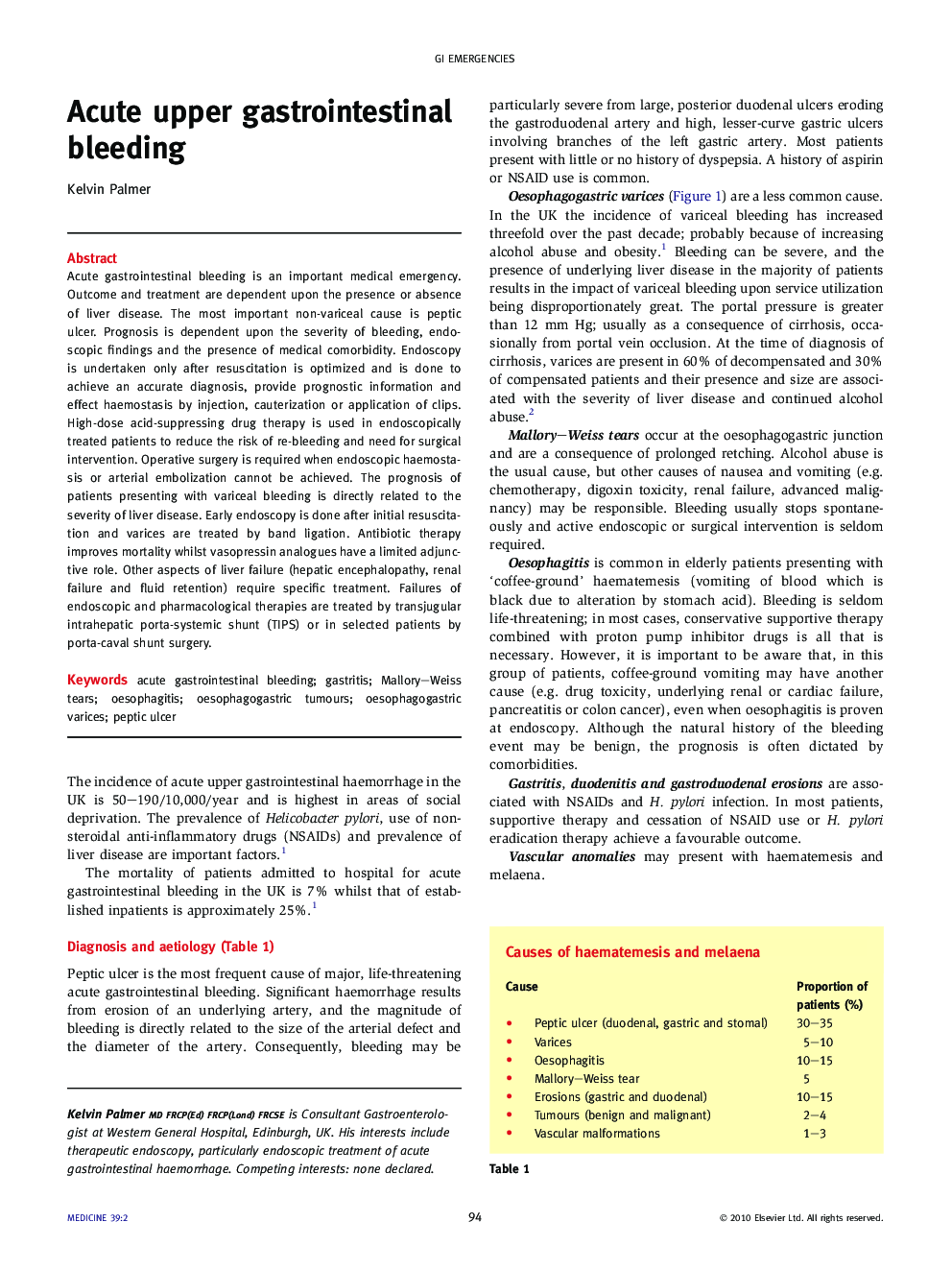| کد مقاله | کد نشریه | سال انتشار | مقاله انگلیسی | نسخه تمام متن |
|---|---|---|---|---|
| 3805029 | 1245143 | 2011 | 7 صفحه PDF | دانلود رایگان |

Acute gastrointestinal bleeding is an important medical emergency. Outcome and treatment are dependent upon the presence or absence of liver disease. The most important non-variceal cause is peptic ulcer. Prognosis is dependent upon the severity of bleeding, endoscopic findings and the presence of medical comorbidity. Endoscopy is undertaken only after resuscitation is optimized and is done to achieve an accurate diagnosis, provide prognostic information and effect haemostasis by injection, cauterization or application of clips. High-dose acid-suppressing drug therapy is used in endoscopically treated patients to reduce the risk of re-bleeding and need for surgical intervention. Operative surgery is required when endoscopic haemostasis or arterial embolization cannot be achieved. The prognosis of patients presenting with variceal bleeding is directly related to the severity of liver disease. Early endoscopy is done after initial resuscitation and varices are treated by band ligation. Antibiotic therapy improves mortality whilst vasopressin analogues have a limited adjunctive role. Other aspects of liver failure (hepatic encephalopathy, renal failure and fluid retention) require specific treatment. Failures of endoscopic and pharmacological therapies are treated by transjugular intrahepatic porta-systemic shunt (TIPS) or in selected patients by porta-caval shunt surgery.
Journal: Medicine - Volume 39, Issue 2, February 2011, Pages 94–100